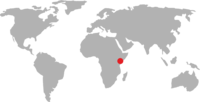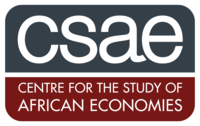HUMAN CAPITAL AND IDENTITY
OUR AIMS
Religious and ethnic identities shape individual social and economic life. These are factors that play a fundamental role in most violent inter-group conflicts, especially in developing countries. The research team think it is essential to understand how economic factors influence the strength of group identity, which may give rise to systematic in-group favouritism and out-group hostility.
This project aims to integrate an innovative, experimentally validated survey module, designed to measure pro-social and anti-social behaviours as well as in-group vs. out-group biases into an established, long-term and large-scale panel data in Kenya (Kenya Life Panel Survey - KLPS). The aim is to study the impacts of investment in health, skills and financial capital on these measures. The project also aims to study choices of religious identity. It is motivated by the phenomenal global growth of the Pentecostal movement – whose beliefs feature the active, miraculous role of God and spirits in everyday life, including alleviation of hardship. The researchers will study prevalence of conversions from traditional churches to Pentecostal churches during adolescence and early adulthood and whether economic factors and human capital affects the choice of religious denomination.
ABOUT THE PROJECT
This project will extend a longitudinal (panel) dataset of individuals in Kenya who were participants in one or more randomized health, skills training, and financial capital interventions during childhood and adolescence. It is adding a new survey module in order to measure various dimensions of individual identity and interview at least 6,500 adult respondents. A key aspect of this project is to evaluate the long-term impacts of three different policy-relevant interventions in a low-income country.
OUR RESULTS
The main finding is that the program reduces the likelihood of membership in a Pentecostal denomination up to 20 years later when respondents are in their mid-thirties, while there is a comparable increase in membership in traditional Christian denominations. The effect is concentrated and statistically significant among a sub-group of participants who benefited most from the program in terms of increased education and income. The effects are unlikely due to increased secularisation, because the program does not reduce measures of religiosity. The results help explain why the global growth of the Pentecostal movement, sometimes described a “New Reformation”, is centered in low-income communities.
PROJECT DETAILS
Project timeline
September 2018 - November 2022
Location
Kenya

Associations





